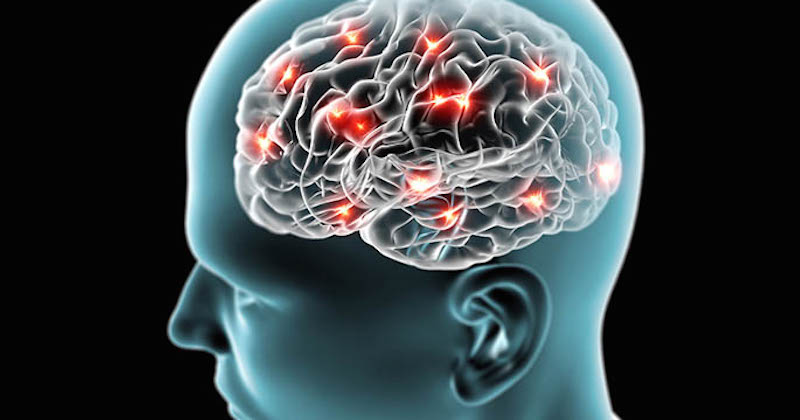Fasting Can Recharge Your Brain, Improve Cognitive Function And Lower Risk Of Dementia
Last updated on
Healthy eating is encouraged, from as soon as a baby can have their first food. Many of us try to eat right. We obsess over nutrients and healthy diets, power snacks and evil fat, and some count calories. Foods such as fish and green leafy vegetables are promoted to us as brain food.
The importance of breakfast for the finest performance of the brain is the tagline of most healthy diets. But does your brain really need food to be at its best? Or does it work better when it is off food altogether? This question may seem odd at first, but it has been tested by multiple researchers.
Short-Term Fasting And Its Effects On Our Body
Mark Mattson, the Chief of Laboratory of Neuroscience at the National Institute on Aging and a Professor of Neuroscience at The John Hopkins University introduced the idea of short-term fasting and its effects on our body.
Short-term fasting or intermittent fasting is restricting yourself from food intake for a period of time. Fasting reduces blood pressure and decreases heart rate while you are at rest.
For your brain, short-term fasting comes as a challenge as well. The circuits in your brain are activated as a result of this challenge. This encourages the growth of more nerve cells. This mental challenge is for your brain, as exercise is for your muscles. Staying off food provides the perfect stress to your brain cells. In simpler words, no food recharges the brain.
Short-Term Fasting Recharges Your Brain
Studies have shown that fasting twice a week may in fact decrease the risk for dementia and Alzheimer’s disease. Alzheimer’s disease is a degenerative brain disease that affects memory and causes a loss in thinking and reasoning skills.
With improvement in healthcare and the rise in the number of old people alive today, Alzheimer’s disease is now more common than ever before. More than 30 million people suffer from Alzheimer’s disease worldwide today. Dementia is a leading cause of death.
Mark Mattson and colleagues tested effects of short term fasting on mice. They concluded that brain cells were more active when the mice were looking for food. And not only that, fasting significantly improves the way your brain adapts to stress.
At the cellular level, your brain becomes resistant to the changes that occur in Alzheimer’s disease. These beneficial changes improve brain function and memory. Also, fasting increases the number of mitochondria present in your nerve cells. Mitochondria are powerhouses of cells. Increase in the number of mitochondria strengthens nerve cell connections, thus improving your learning and memory capacity.
Research shows promising results regarding improved memory with short-term fasting. Dr. Dale Bredesen of the UCLA Mary S. Easton Center for Alzheimer’s Disease Research and Buck Institute for Research on Aging led a study on patients with memory problems.
He stated that memory loss can be reversed by diet changes along with exercise and brain stimulation. That being said, this improvement was very gradual after at least three to six months of continued treatment. This is very promising news for us since the improvement in memory and brain performance stayed even after patients stopped treatment.
Other Health Benefits Of Short-Term Fasting
Fasting Burns Fat
The effects of fasting are useful to your entire body, not just limited to the brain. Your energy metabolism shifts from burning glucose to burning stored fats. Energy from glucose is stored in the liver and gets depleted in approximately ten hours.
If you consume three meals a day, it means that glucose stores are never finished. Your body doesn’t burn fat, unless you exercise. Since there is no fat burning, there is no ketone body formation. Mattson and his team saw that ketones were beneficial for the brain. On the other hand, during fasting, glucose stores are exhausted and your body starts burning fats. As a result of burning fats, your body produces ketone bodies. These ketones provide an energy source for the nerve cells.
Fasting Produces New Stem Cells
Not surprisingly, fasting also produces new stem cells. Absence of food intake results in a renewal of blood and immune systems. In animal studies and human studies of patients receiving chemotherapy, long fasts reduced the number of disease-fighting white blood cells. Later, this reduction in white cells regenerates new immune system cells from stem cells.
Fasting Is Easy! Here’s How …
There is a variety of different ways you can fast. There are extended, water only fasts and then there are shorter fasts.
In human studies, a popular way to fast is the 5:2 diet. In this diet, you consume 500 calories on two days (best obtained from fresh fruits and vegetables that have very low calories), and eat your regular healthy diet on the other five days of the week. Just make sure you drink plenty of water and keep your body hydrated.
An alternative method is to restrict food intake within a certain time interval of the day, for instance, consumption of food between 11am to 7 pm daily. Irrespective of which fasting diet you follow, it’s a gradual process to integrate into your daily life. According to internationally renowned natural health physician Dr. Joseph Mercola, it may take several weeks to months for the body to get used to fat-burning in the absence of food.
You can try fasting today! A good way to start fasting is by avoiding food three hours before bedtime and gradually delaying breakfast until the time you can skip breakfast altogether.
Related reading: How intermittent fasting can help women’s belly fat loss without hormonal imbalances.
Cautionary Note:
Short-term fasting may not be recommended for the young, as they require more calories to grow. Also, it is not recommended for the very old, who may receive little benefit from restricted food intake. Consulting your health professional before starting a short-term fasting regimen is a good idea.
The Take-Home Message
In conclusion, fasting has many health benefits, involving the brain, cardiovascular health, liver and blood, and reducing the risk of chronic disease. Research on short-term fasting and its benefits is on-going. However, we have found an important piece of the puzzle by linking its role in reduction of risk for dementia or Alzheimer’s disease. Perhaps, it is time to move our obsession from healthy eating to short-term fasting. It is definitely worth giving a try!
Some of the links I post on this site are affiliate links. If you go through them to make a purchase, I will earn a small commission (at no additional cost to you). However, note that I’m recommending these products because of their quality and that I have good experience using them, not because of the commission to be made.
Comments
Leave a Reply



































 JOIN OVER
JOIN OVER
I want to know if intermittent fasting is it okay if you take medication should I take medication for high blood pressure Neurontin for pain in Ativan. I want to fast the prophet did eating a very early breakfast and then not eating again till dinner time what I do? Just drink water?